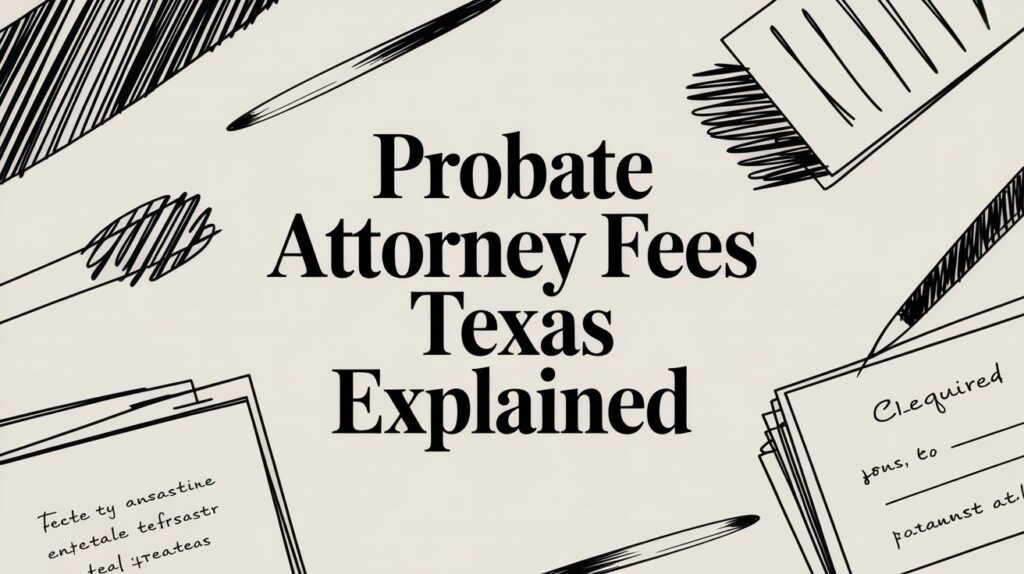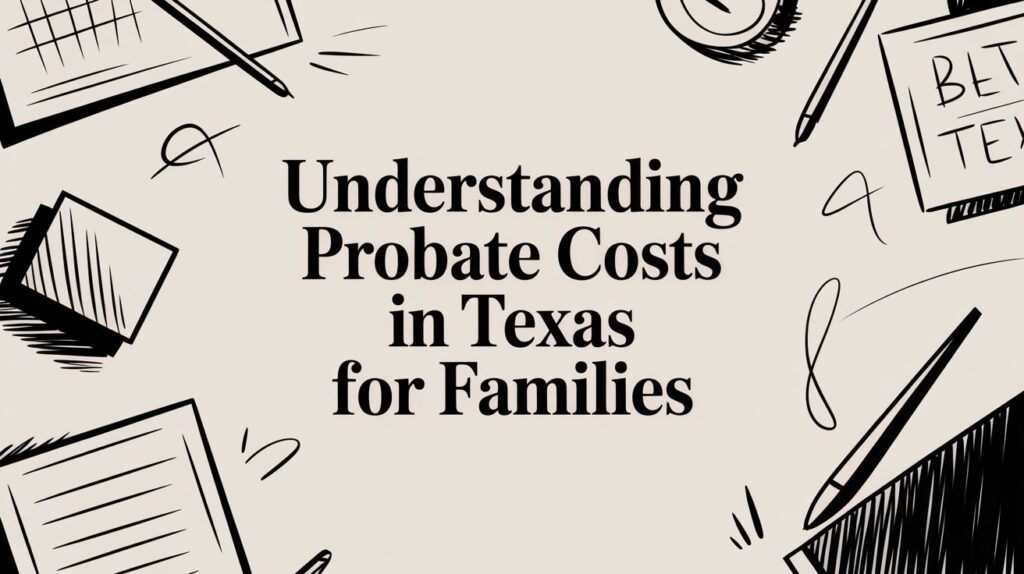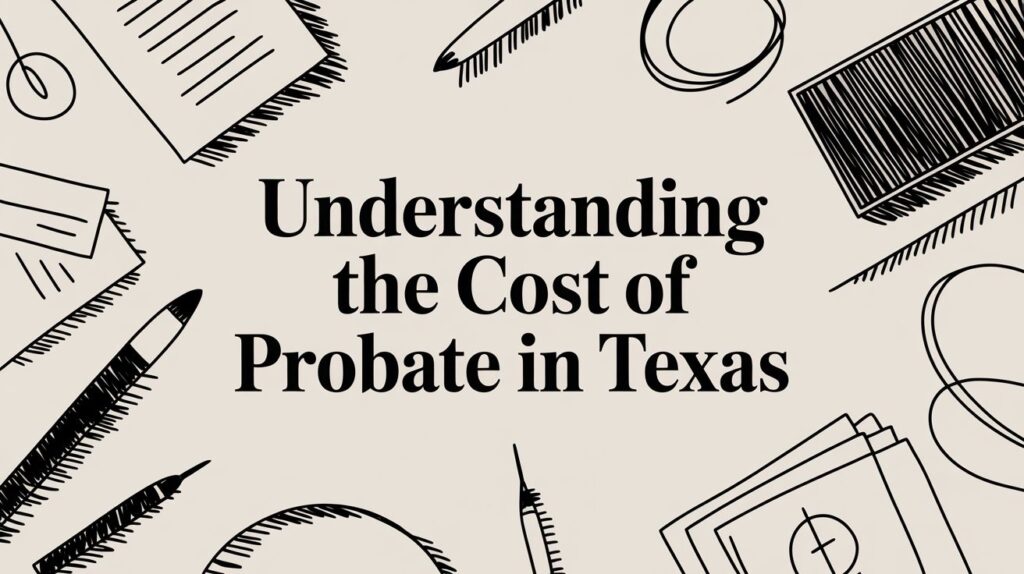Probate is the legal process that oversees the distribution of a deceased person’s assets and settles their debts. Ensuring the deceased’s wishes are respected and handling their estate according to the law is critical. However, when an individual passes away without a will, the probate process becomes more intricate, leading to a series of challenges and potential complications for the surviving family members. In Texas, intestacy, or dying without a will, significantly affects how the state distributes an individual’s estate. Intestacy laws dictate the beneficiaries’ hierarchy and the assets’ distribution among close family members without a will. This legal framework can lead to uncertainties and disputes among heirs, complicating a challenging situation.
Understanding the probate procedures in Texas when there’s no will is crucial for families navigating the aftermath of a loved one’s passing. This essay will delve into the intricacies of intestacy laws, explore the challenges families face in these circumstances, and highlight the importance of proactive estate planning to mitigate potential complexities and conflicts.
The Intestacy Process in Texas

In Texas, intestacy laws govern the distribution of an individual’s estate without a will. These laws ensure that assets are allocated according to legal guidelines rather than the deceased’s preferences by providing a default set of rules. The process begins with determining the legal heirs, including spouses, children, parents, and siblings. Texas law also specifies specific percentages of the estate allocating to different classes of heirs, such as statutory shares, based on the legal relationship of the heirs to the deceased.
Navigating the intestacy process in Texas requires careful attention to detail and adherence to legal guidelines. While intestacy laws provide a framework for asset distribution, they may not always align with the deceased’s wishes or the needs of their surviving family members. Therefore, seeking guidance from legal professionals familiar with Texas probate laws is advisable to ensure a smooth and fair process for all parties involved.
Steps Involved in Probate Administration

Probate administration in Texas involves a series of steps to ensure the orderly distribution of a deceased person’s estate. The process begins with filing a petition for probate with the appropriate court, which initiates legal proceedings and requests the court’s intervention. Typically, a family member or a legal professional appoints an administrator to manage the estate’s affairs, gather and manage assets, pay debts, and distribute assets to heirs. The appointed administrator is responsible for inventorying and appraising assets, including real estate, personal property, financial accounts, and other possessions, and determining their worth for distribution.
The estate must settle any outstanding debts and taxes the deceased owes, such as mortgages, outstanding bills, and income or estate taxes, using funds from the estate. Once these obligations are resolved, the estate’s remaining assets are distributed to legal heirs according to their designated shares under the provisions of the deceased person’s will or Texas intestacy laws. Navigating the probate administration process in Texas requires careful attention to detail and compliance with legal requirements. Executors and administrators must fulfill their fiduciary duties to manage the estate’s affairs responsibly and ensure that assets are distributed fairly among the deceased’s heirs. Seeking guidance from experienced legal professionals can help streamline the probate process and ensure compliance with Texas probate laws.
Additional Considerations and Potential Complications
The probate process in Texas is structured but can be complex due to various factors. Legal challenges, asset complexity, and the estate’s size can extend the probate timeframe. Contested estates can arise due to disputes over asset distribution, which can prolong the probate process and require court intervention. Undisclosed debts or assets can pose challenges during probate administration, as creditors may come forward with claims against the estate. Undisclosed assets can complicate the distribution process and require additional investigation to ensure equitable distribution among heirs.
Texas law requires a guardian or trustee to manage assets inherited by minors until the child reaches majority age when naming minor children as beneficiaries or heirs. Establishing appropriate guardianship arrangements and managing assets for minor heirs adds complexity to the probate process and requires adherence to specific legal requirements. To navigate these additional considerations and potential complications, executors, administrators, and beneficiaries should work closely with experienced legal professionals to ensure the timely and efficient administration of the estate.
Benefits of Having a Will

A valid will offers several benefits that can streamline the probate process and provide peace of mind for the testator and their loved ones. Key benefits include controlling asset distribution, appointing an executor, minimizing disputes, and providing for minor children. The testator uses a will to dictate how they want to distribute their assets upon death, specifying beneficiaries and designating the distribution of individual assets or percentages of the estate.
The testator also grants the ability to appoint a personal representative to manage the probate process and ensure the will’s provisions according to the testator’s wishes. Clear instructions will help minimize conflicts among family members or other beneficiaries. Additionally, a will can appoint guardians to take care of minor children in the event of their death and establish trusts to manage assets on their behalf until they reach majority age. Overall, having a will provides security and control over one’s legacy, enabling the testator to make informed decisions about asset distribution and loved ones’ care.
Conclusion
In conclusion, understanding probate procedures in Texas when there’s no will is essential for families facing the complexities of estate administration after a loved one’s passing. The intestacy process in Texas, governed by specific laws, outlines the distribution of assets among legal heirs without a will. Navigating probate administration involves a series of steps, from filing a petition for probate to distributing assets to heirs after settling debts and taxes.
Overall, proactive estate planning, including creating a will, can help mitigate potential challenges and conflicts during the probate process, ensuring the orderly distribution of assets and the fulfillment of the deceased person’s wishes. By understanding probate procedures and engaging in estate planning, individuals can navigate the complexities of estate administration and safeguard their legacy for future generations.








